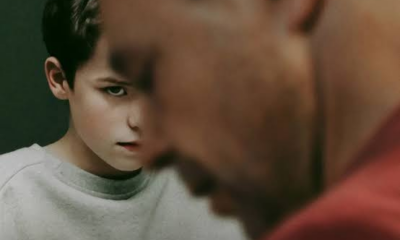
Featured Item

The tricky art of parenting ‘screenagers’
If the last bargaining tool you have left with your children is how much screen time they get, you’re not alone. With no blueprint for the increasingly complex online world we are navigating, parents need to equip themselves with the knowledge and skills needed to protect their children from the often-detrimental effects of screens.
By the age of seven, a Generation Alpha child – those born between 2010 and 2024 – will have spent an entire year watching screen media. Leading child development and protection specialist, Luke Lamprecht, shared these and other alarming insights at a recent King David Primary School Linksfield talk on navigating online health and wellness for our children.
“I spend most of my time sitting with children with challenging behaviours and emotions, and all they want to know is why they don’t get more time on their machines,” he said.
Parents are having to learn how to deal with these “screenagers” on the job, as tackling this issue is completely unprecedented, Lamprecht said. Addressing the resulting challenges begins with parents examining their own behaviour. If you’re constantly looking at your phone or smartwatch notifications, you’re telling your children that this behaviour is acceptable, moreover, that the screen is more important than they are.
About 80% of the children he works with also think they spend too much time online, Lamprecht said. “They know something’s wrong; they just don’t want to do anything about it.” Worryingly, all of the children he asked thought that their parents spent too much time online. “There’s an interface between these two things,” he said. Children learn through play, and parents should be one of their bigger playmates.
Parents need to understand the dangers of devices alongside the real-world threats facing children.
“I’m seeing more emotional and behavioural harm caused to children online than I am in the real world,” Lamprecht said. “We’ve overprotected our children in the world, and we’ve underprotected them online because of this fallacy of protecting their privacy. Your child’s privacy is never more important than your duty to protect them when they’re children.”
Social threats are the most worrying, as there seems to be an inordinate amount of online cruelty at the moment. Interestingly, our children have become increasingly fragile in the face of this cruelty.
“There’s a weird mix of children who are easily offended but who think that they can say anything to anybody about anything. This is because they’ve confused freedom of speech with a compulsion to have an [uninformed] opinion about everything. So, it’s a hard world that they find themselves in.” Ironically, the most connected generation is the loneliest one.
Parents are competing with online entities when it comes to forging attachments with their children. In the modern world, algorithms feed users’ stories, suggested friends, and content that reinforces their online preferences. This has become the “attention economy”, Lamprecht said. “It’s competing with our children for intimacy. It’s talking to our children, and our children talking back.”
Yet, how we measure success in an online age has nothing to do with what we have to offer the world, it’s all external, he said. “We live in this world of constant comparison where we have forgotten to honour the huge value of a completely ordinary life.”
We no longer have tweens and teens, we have “screenagers”, who are socialised differently, Lamprecht said. “We have side-to-side socialisation, as opposed to face-to-face socialisation, mediated by a screen. They’re literally sitting next to each other, talking to other people on a screen and not interacting with their friend sitting next to them. The problem with that is they start losing some very important human skills.” This includes being able to read other people’s moods and emotions and reacting accordingly.
There has, however, been a big push back from parents, Lamprecht said. He suggests using Common Sense Media as a resource. Recognising that those who design gaming and social media platforms have no interest in protecting or verifying children’s ages, Common Sense Media recommends not giving smartphones to children until they reach Grade 8.
“Ultimately the solution to technology-related problems is your relationship with your child,” Lamprecht said. “The biggest problem in the development of children is what we call the ‘opportunity cost’. It’s about what you aren’t doing while you are online, the things kids are missing out on like being in the sun, running around, talking, learning to cook, reading, and interacting with others.” Not getting these opportunities stunts their development.
He advocated the American Psychiatric Association’s (APA) recommendation to be intentional online. The APA encourages kids to be mindful of their media consumption and its effects on their mood, sleep, and relationships. Choose your content, don’t let content be fed to you, it suggests. “Choose positive content because the human brain has an inherent negativity bias – don’t feed it more negativity,” Lamprecht said. Setting a balance between screentime and other important activities is also key.
Parents must encourage open communication about online experiences. If you get an alert from a parental control like Bark, don’t panic, Lamprecht said. Often children get content that they don’t consent to. “That alert is for you to have a conversation with your child, not lose your mind,” he said.
Parents need to approach screentime with the same caution as they would other harmful behaviour. You wouldn’t give children a credit card and let them get as many Big Macs as they like, Lamprecht said. “Then why do you let your child sit in front of the screen for six hours playing Roblox? It’s exactly the same thing in terms of development. It’s junk food for the brain.
“We can’t abandon our children in front of screens and believe that it’s a good play,” he said. “If these children are going to keep alive any inborn sense of wonder about the world and see it as a magical, joyous place, they need a guide, and that’s you.”








